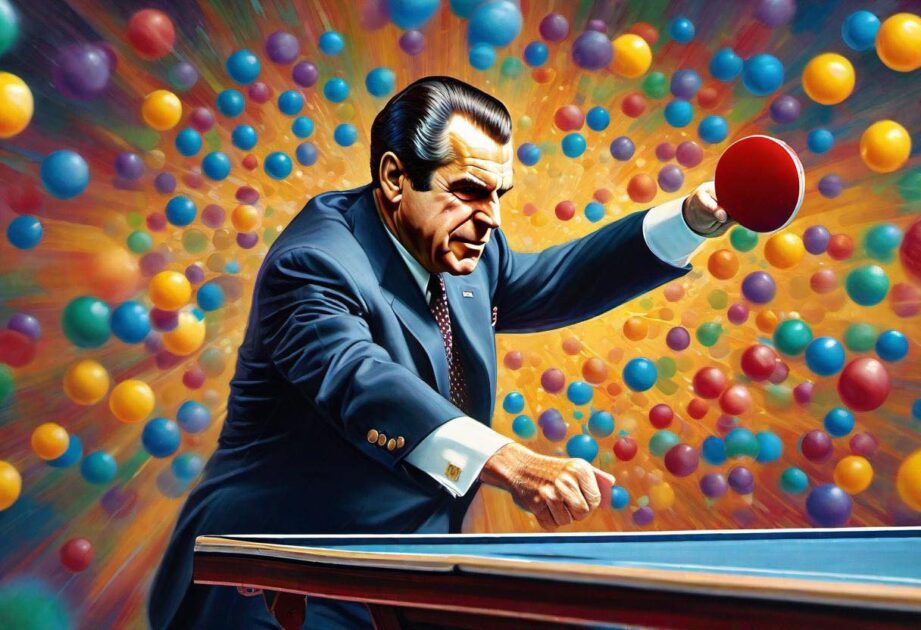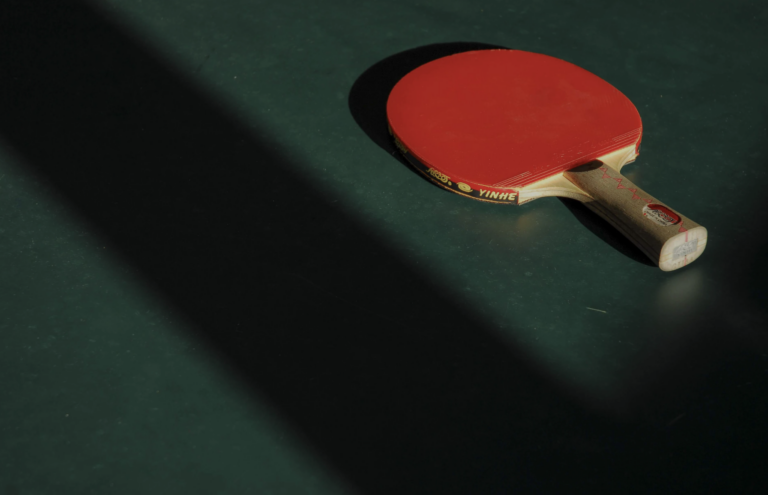
The diplomatic fate of the free world held it’s breath over a game of ping pong.
In 1971, the world bore witness to an event that was far more than just a sports competition. The 31st World Table Tennis Championships in Nagoya, Japan, became the backdrop for an unprecedented geopolitical move that would come to be known as “Ping Pong Diplomacy.” Here’s a look into how a seemingly run-of-the-mill table tennis match changed the course of history.

Table tennis, or ping pong as most people call it, might not strike one as a game of significant political import. Yet, in the Cold War era, when the United States and China maintained no diplomatic relations and were essentially isolated from one another, the sport provided a bridge.
Setting the Stage
China’s invitation to the American table tennis team to visit Beijing came as a shock to many. It’s worth noting that China had been absent from the World Championships since 1965 due to the Cultural Revolution. Their reappearance in 1971 was not merely a sporting return but a strategic move. The American and Chinese teams had first interacted in Nagoya, where a chance encounter between players Glenn Cowan and Zhuang Zedong set the stage. Zhuang, a three-time world champion, presented Cowan with a silk-screen portrait of China’s Huangshan mountains, symbolizing peace and friendship.
The Championships in Nagoya
The games in Nagoya showcased the prowess of both teams. China’s male and female teams secured the title, a testament to their dominance in the sport. Yet, the highlight wasn’t just their on-table performance. Chinese Premier Zhou Enlai extended an invitation to the U.S. team to visit China, which they accepted.
RELATED: The Unlikely Journey And Lasting Legacy Of The 1988 Olympic Jamaican Bobsled Team
Beyond the Table: The Significance
The American team’s visit to China was widely publicized. Remember, this was a time when no American had set foot in Beijing for over two decades. Their week-long stay involved exhibition matches, tours, and crucially, opened a door for diplomacy.
A year after the ping pong diplomacy, President Richard Nixon made his historic visit to China in 1972. The trip paved the way for establishing diplomatic relations between the two nations in 1979. The world watched in astonishment as a simple sport played a role in melting the ice of two decades.
RELATED: Minnesota Secures Narrow Win Over Iowa Following Controversial Call
Legacy of the 1971 Championship
The Nagoya championship wasn’t just about winning titles. It became a testament to the power of sports in bridging divides. Sport has an incredible ability to transcend politics, as was evident in 1971.
In today’s times, when polarization is rife, the 1971 World Table Tennis Championship serves as a reminder. It tells us that sometimes, all it takes is a ball, a paddle, and the spirit of the game to make real change.
Today’s diplomatic ties between China and the U.S., though complex, owe a small yet significant part to a table tennis match.
NEXT: The Munich Massacre: A Dark Cloud Over The 1972 Olympics